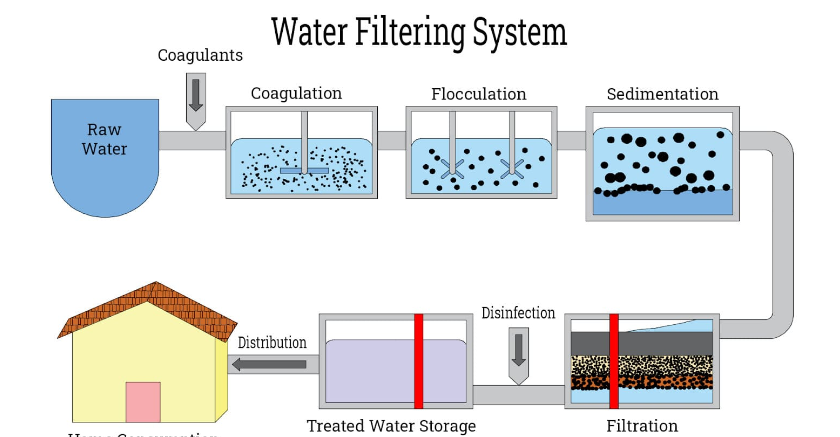Table of Contents
- Introduction to Water Filtration Systems
- Health Benefits of Clean Water
- Cost Savings from Filtration
- Environmental Impact
- Types of Water Filtration Systems
- Maintenance and Care
- Choosing the Right System
- Conclusion
Water filtration systems in modern homes offer numerous benefits, including removing contaminants, improved taste, and safer drinking water. These systems enhance overall health by reducing exposure to harmful substances. Additionally, they provide convenience and cost savings compared to bottled water, contributing to a sustainable and eco-friendly lifestyle.
Introduction to Water Filtration Systems
Water filtration systems have become essential to modern homes, providing clean and safe drinking water. The purpose of these systems is to purge impurities and enhance the flavor and purity of water. In regions like Tampa, where water quality can be variable, having an efficient system for water purification Tampa is crucial for ensuring the health and well-being of residents. Clean water is fundamental to daily activities, from cooking and cleaning to personal hygiene and hydration, making the role of filtration systems even more critical.
According to the Environmental Protection Agency, various pollutants can be found in tap water, necessitating reliable filtration systems. These systems can filter out bacteria, lead, chlorine, and other hazardous substances, making the water safer for everyday use. Contaminants in tap water can come from numerous sources, including industrial runoff, environmental pollutants, and aging infrastructure, which underscores the need for robust filtration solutions in modern homes.
Health Benefits of Clean Water
Clean and purified water is crucial for overall health, as it eliminates harmful pathogens, heavy metals, and chemical pollutants from the water supply. This reduces the risk of health issues like gastrointestinal diseases, reproductive problems, and neurological disorders. Filtered water is essential for families with young children or the elderly, supporting bodily functions, skin health, and digestion. It also has additional benefits like improved flavor, odor reduction, and removal of chlorine byproducts, making daily water consumption more pleasant and encouraging higher intake for hydration, detoxification, and temperature regulation.
Cost Savings from Filtration
A water filtration system can significantly reduce household expenses by eliminating the need for bottled water, reducing grocery bills, and minimizing waste. Filtered water also prolongs the lifespan of plumbing systems and household appliances, preventing costly repairs and replacements. Reduced scale buildup and corrosion in pipes and appliances also minimize maintenance issues and repair costs. A reliable filtration system can enhance property value by improving water quality and infrastructure, making it an attractive feature for potential home buyers. The financial outlay for a filtration system is a long-term investment with economic savings and improved quality of life.
Environmental Impact
Using water filtration systems has a positive impact on the environment. By reducing dependency on bottled water, plastic waste is significantly decreased. This is crucial because plastic pollution is a growing threat to our planet. As highlighted by National Geographic, plastic waste poses serious environmental hazards. Manufacturing and disposal of plastic bottles exacerbate natural resource depletion and ecological deterioration. Thus, adopting a filtration system contributes to a more sustainable and eco-friendly lifestyle.
Moreover, the energy used in producing, transporting, and recycling plastic bottles creates a substantial carbon footprint. By switching to filtered tap water, households can reduce their environmental impact and promote sustainability. This choice supports broader efforts to combat pollution and global warming, highlighting the interconnectedness of personal decisions and global ecological health.
Types of Water Filtration Systems
Filtering water systems are made to eliminate different kinds of impurities. Common types include Activated Carbon Filters, which remove chlorine, sediment, and volatile organic compounds, and Reverse Osmosis Systems, which remove lead, nitrates, and pesticides. In addition to Ion Exchange Filters, which eliminate the calcium and magnesium ions that produce hard water, UV filters employ ultraviolet radiation to disinfect water, removing germs and viruses without chemicals. Homeowners may choose the best system for their requirements by being aware of these variations. It is crucial to match the system to the specific contaminants in the local water supply, as each type of filter offers unique benefits and limitations. Homeowners should evaluate their water quality and consult professionals to determine the best solution.
Maintenance and Care
Regular maintenance ensures that water filtration systems function efficiently. This includes periodic replacement of filters and routine cleaning of system components. Proper maintenance extends the system’s lifespan and guarantees continuous clean water. Neglecting maintenance can reduce the system’s effectiveness and potentially lead to contamination. For instance, a clogged or dirty filter can harbor bacteria and diminish water quality, defeating the purpose of having a filtration system in place.
The kind of filter and the manufacturer’s recommendations determine the maintenance plan, which usually consists of monthly to yearly inspections. By adhering to a regular maintenance routine, homeowners can ensure their water filtration systems continue to provide safe and clean water, protecting their health and enhancing the system’s longevity.
Choosing the Right System
The choice of a water filtration system depends on factors like local water quality, budget, and health concerns. Conducting water testing and consulting professionals for an informed decision is recommended. Factors like water hardness, pH levels, and chemicals can influence the system’s effectiveness. Additionally, considering household water usage and lifestyle needs can guide the selection process. Whole-house filtration systems benefit families with high water consumption, while point-of-use filters are more practical for smaller households. Professional consultation ensures the chosen system aligns with water quality needs and personal preferences.
Conclusion
Water filtration systems are a cost-effective and environmentally friendly investment for modern homes. They provide clean, safe drinking water essential for a healthy lifestyle. Choosing the right system and maintaining it properly is crucial for optimal performance. Homeowners may feel secure knowing that their water is healthy and free of dangerous pollutants.

